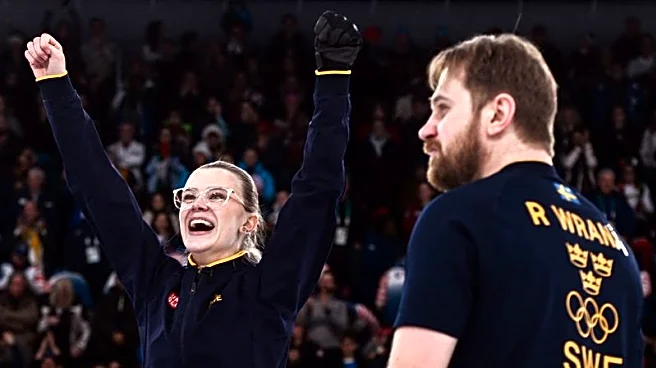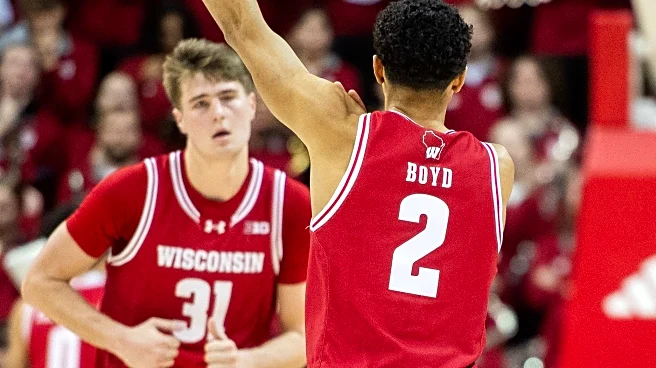What's Happening?
YouTube TV and Disney are embroiled in a significant dispute that has resulted in the blackout of Disney-owned channels, including ESPN and ABC, for YouTube TV's 10 million subscribers. The conflict began
on October 30, when negotiations over a new distribution contract reached an impasse. Disney is seeking fee increases to support its content production and streaming ambitions, while YouTube has rejected these demands, citing concerns over increased costs for subscribers. The blackout has affected viewers' access to popular programs such as 'Monday Night Football' and 'Dancing With the Stars,' leading to frustration among sports fans and other viewers.
Why It's Important?
This dispute highlights the shifting dynamics in the television industry, where streaming services like YouTube TV are gaining significant influence. The blackout impacts millions of viewers who rely on YouTube TV for access to live sports and entertainment, potentially driving them to seek alternative services. The conflict underscores the challenges faced by traditional broadcasters like Disney in negotiating favorable terms with powerful tech companies. As streaming services continue to grow, they wield greater leverage in negotiations, affecting the availability and pricing of content for consumers. The outcome of this dispute could set a precedent for future negotiations between streaming platforms and content providers.
What's Next?
The ongoing negotiations between YouTube and Disney are expected to continue, with both sides seeking a resolution that satisfies their respective interests. If the blackout persists, YouTube TV may face increased subscriber cancellations, while Disney risks losing advertising revenue and viewer engagement. The dispute may prompt other streaming services to reevaluate their strategies in dealing with content providers, potentially leading to shifts in the industry landscape. Stakeholders, including sports leagues and advertisers, will be closely monitoring the situation, as the resolution could impact broadcasting agreements and revenue streams.
Beyond the Headlines
The dispute raises broader questions about the future of television distribution and the role of streaming services in shaping content availability. As tech companies like Google, which owns YouTube, continue to expand their influence, traditional broadcasters may need to adapt their business models to remain competitive. The conflict also highlights the growing importance of live sports as a key driver of subscriber retention for streaming platforms, emphasizing the need for innovative solutions to balance content costs and consumer pricing.











